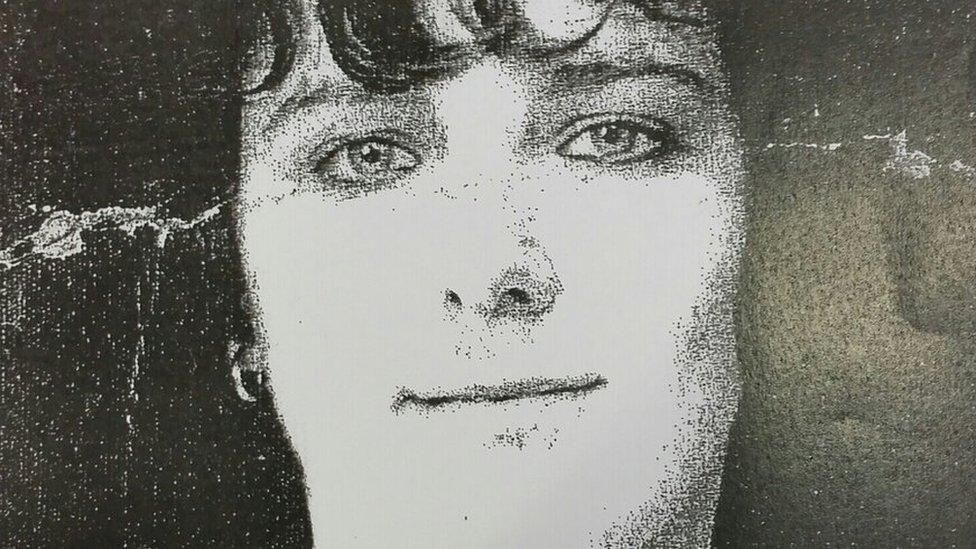Shocking failures by police over Belfast woman's murder, rules judge
- Published

Rosaleen O'Kane was dead in her home in Belfast in 1976
The sister of a woman murdered 47 years ago has said she feels vindicated after a judge ruled that the police failed to properly investigate her death.
The burnt body of 33-year-old Rosaleen O'Kane was found at her flat in north Belfast in September 1976.
No-one has been prosecuted for the suspected sectarian murder despite detectives receiving information with three names potentially linked to it.
The judge at Belfast High Court said it was a "shocking and disgraceful" case.
He said the police breached a legal duty to take action to bring anyone responsible for Ms O'Kane's death to justice.
He described the level of police inactivity as egregious and inexplicable and said the manner in which the investigation was conducted "was considerably worse" than he had initially found.
"For a period of almost 50 years to elapse without obvious suspects being arrested, interviewed or even spoken to is frankly both shocking and disgraceful," he said on Tuesday.
'Justice will never happen'
Rosaleen O'Kane's badly burnt and naked body was discovered at her home at Cliftonpark Avenue.
After her funeral two police officers allegedly indicated that she had been murdered, and it was suggested that "black magic" may have been involved.
"It's just unbelievable - you couldn't make a story up like that," Ms O'Kane's sister Kathleen Graham told BBC Radio Ulster's Evening Extra programme on Tuesday.
"They probably knew who done it [and] swept it under the carpet - they treated her terrible."
Ms Graham said that after "48 years of nothing" she felt vindicated by the court ruling.
"I'm glad that people know now - I would like to see justice but it will never happen now," she said.
"It's just sickening, it really gets me annoyed thinking about it."
'Repeated failures to act'
In 2002 the police informed Ms O'Kane's relatives that a reinvestigation was to be carried out.
Since then the case has been passed from the Police Service of Northern Ireland's (PSNI) Historical Enquiries Team to its Serious Crime Review Team and then to the Legacy Investigations Branch.
Ms Graham issued judicial review proceedings against the PSNI, claiming the force had breached an obligation to detect crime and bring offenders to justice.
At the centre of the legal challenge was information provided to detectives back in 1976 by an unidentified key witness.
The police identified a need to speak to the witness in 2002 but failed to do anything about it, the court heard.
The judge at Belfast's High Court ruled that the police breached a legal duty to investigate Rosaleen O'Kane's death
Following the witness's death in 2011, the police concluded that nothing more could be done about his earlier statement.
That indicated that detectives had effectively given up on the investigation, argued Ms Graham's barrister.
A barrister representing the PSNI chief constable disputed there had been an abdication of investigative responsibilities.
The barrister said the police were dealing with 1,100 historical cases but were working with limited resources.
The judge said the situation was worse than had been previously stated and that the family had been treated appallingly and "pushed from pillar to post".
The deficiencies highlighted by the judge included:
a failure to treat Ms O'Kane's death as a murder investigation from the outset
a lack of any action between 1976 and 2002 concerning identified suspects, even when their addresses were identified
the fact the case has sat untouched with the Legacy Investigations Branch for the last seven years
The judge said: "The repeated failures to act in this case by taking steps which were deemed by senior officers to be necessary are both egregious and inexplicable."
A spokesperson for the PSNI said they acknowledged the comments of Mr Justice Humphreys today.
"We will now take time to fully consider the written judgment and it would, therefore, be inappropriate to comment further at this time."